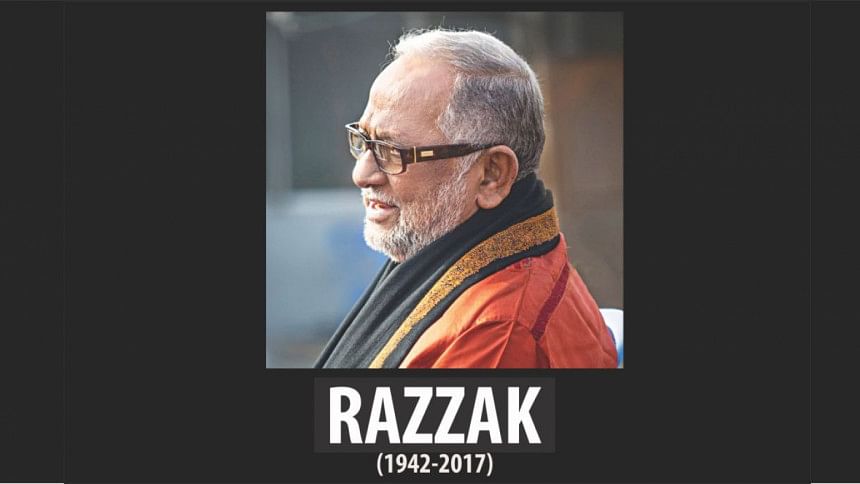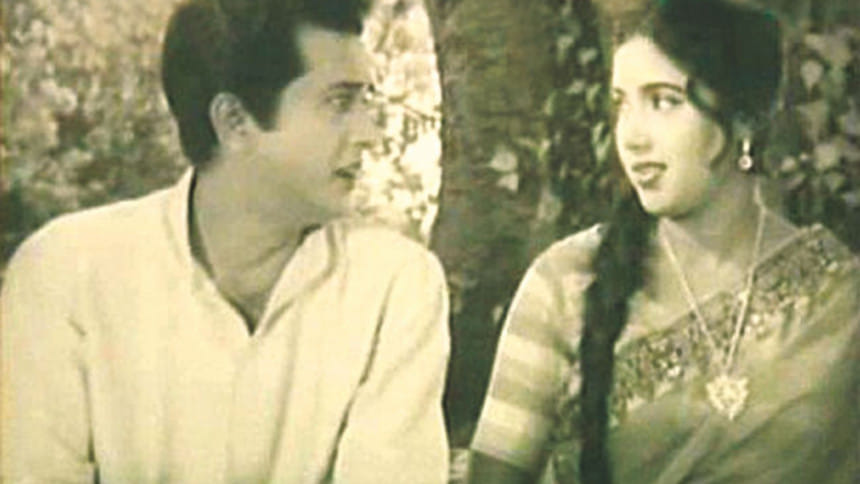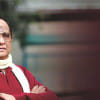Nayakraj exits the scene

After the disappointment of the commercial failure of his first cinemascope Urdu film “Bahana” in the mid-60's, Zahir Raihan wanted to bounce back with “Behula”.
But most of the leading actors of Dhaka'i cinema were uninterested in playing the lead. Why would they? The lead was dead for most of the film. But one of his assistant producers, one Razzak, stepped in.
The film starring Suchanda alongside him brought the limelight on Razzak. His days of playing minor roles and being an assistant producer came to an end and the rise of “Nayakraj” began.
The curtain of his illustrious career came down yesterday, August 21. He was 75.
The undisputed emperor of Bangladeshi cinema, who reigned for decades, passed away at the capital's United Hospital at 6:15pm following a heart attack. He was admitted there earlier in the day after falling sick, family sources said. He had been suffering from various complications.
President Abdul Hamid, Prime Minister Sheikh Hasina, Speaker Shirin Sharmin Chaudhury, Finance Minister AMA Muhith, Cultural Affairs Minister Asaduzzaman Noor, Awami League General Secretary and Road Transport and Bridges Minister Obaidul Quader, and Law Minister Anisul Huq expressed grief at his demise.
The country's film fraternity has also collectively decided to suspend all shooting for the next three days to mourn Nayakraj.
His body would be taken to Bangladesh Film Development Corporation around 11:00am today for the fraternity and well-wishers to pay him tribute. Later around 12noon, the body would be taken to the premises of the Central Shaheed Minar.
His namaz-e-janaza would be held at Gulshan's Azad mosque after the Asr prayers. The actor would be buried at the Banani graveyard later in the evening, said family sources.
Born in 1942 in Nagtola (near Kolkata's Tollygunge), Razzak was the youngest among three brothers and three sisters. Despite losing his father Akbar Hossain and mother Nisarunnesa at a young age, he went to study in Kolkata, became a part of Rongo Shobha Natya Dal (led by Chhabi Biswas), and even went to Mumbai to get a diploma at the Filmalaya film institute in 1961.
But the beginning of his dream was not so smooth.
Though he did a few films in Kolkata, times were still hard for him. He decided to come to Dhaka in search of a better life.
He found work at prominent director Abdul Jabbar Khan's Iqbal Films, and assisted in Kamal Khan's “Ujala”.
But it was not easy working on TV series “Ghoroa” and being the assistant director for films and doing minor roles in “Akheri Station” and “Tero Nombor Feku Ostagor Lane”.
He began working as Zahir Raihan's assistant before “Behula” happened.

Despite tough competition from established lead actors like Khan Ata, Khalil, Rahman and Anwar Hossain, Razzak became popular with films like “Abirbhab”, “Moynamoti”, “Taka Ana Pai”, “Dorpochurno” and “Jibon Theke Neya”.
He carried on this momentum after the Liberation War with films like “Manusher Mon”, “Ora Egaro Jon” and “Osru Diye Lekha”.
By the time Razzak became the first action hero of the country with Zahirul Haq's “Rongbaj” in 1974, his title “Nayakraj”, affectionately given by Chitrali editor Ahmed Zaman Chowdhury had stuck.
Even though Razzak was at the height of his popularity, he kept pushing his limits, playing the role of a security guard in “Oshikkhito” in 1978 and of a school assistant in Azizur Rahman's “Chhutir Ghonta”. This was highly unusual for an industry-ruling lead actor.
Razzak made his directorial debut in 1977 with “Ononto Prem”, which he ended with the lead characters kissing, unthinkable at that time. The film was eventually released without that final scene.
As his hero days were ending in the mid-80's, he went on to act and direct films, many under his own production company Rajlokkhi Productions, which he named after his wife.
He went on to become the first Bangladeshi actor to be a UNFPA Goodwill Ambassador, and founded the Bangladesh Film Artistes' Association. All along he kept his presence on the silver screen.
With five National Film Awards to his name, Razzak on January 23 (his birthday) this year told The Daily Star that he was looking forward to doing more films, as much as his health permitted.
“I still have dreams of creating something memorable and wonderful. I can never imagine my existence without films, and I pray to Almighty that I pass from this world still working,” he said.
Razzak was the “king” who never paused.

 For all latest news, follow The Daily Star's Google News channel.
For all latest news, follow The Daily Star's Google News channel. 




Comments